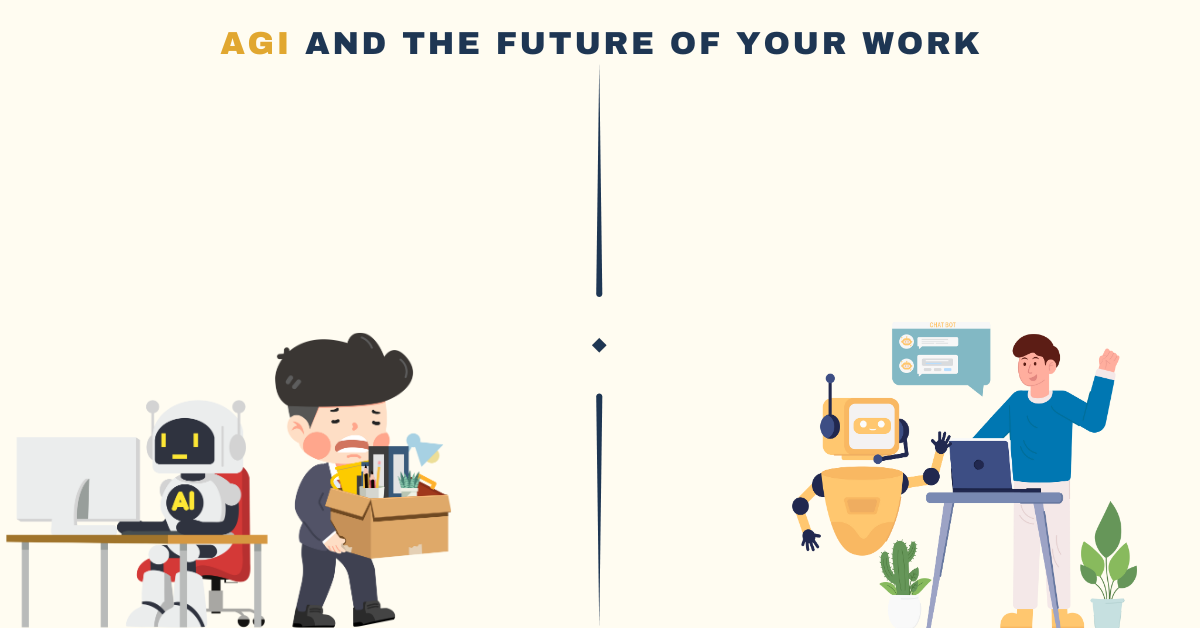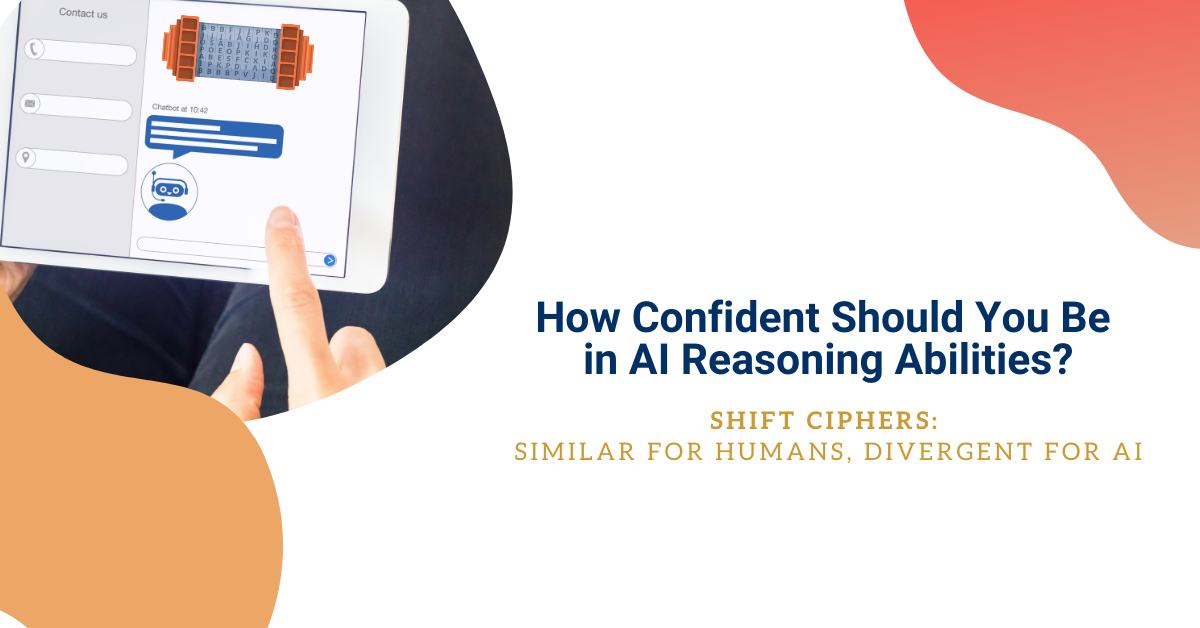Is your profession future-proof against the rise of Artificial General Intelligence (AGI)? With the continuous updates from the big tech companies in terms of new models, such as OpenAI from o1 to o3, Gemini Pro etc., is a logical emerging question for many people across all types of industries. At Tilburg.ai, we are also heavily engaged in this discussion.
Today we will zoom in on a report by the International Monetary Fund’s (IMF) which raises an important question: How will Artificial General Intelligence (AGI) reshape our job market in the next 5 to 20 years? When will AI become smarter than humans? Some experts believe that AI could surpass human intelligence as early as 2029 and as late as 2044, an event commonly referred to as ‘Technological Singularity‘. Let’s zoom in on this topic by researching the subject of the “Frontier of Automation” and how it’s changing industries like education and the way we work in the future.
State of the art: Recently OpenAI has released o3, although it is not available to the public. The model is the first AI system ever to achieve a human-level score on the infamous ARC test, widely regarded as the litmus test for AGI. GPT-4o scored 5 percent, o1: 20 percent and now 75+ percent. Why is the ARC test a test for AGI? Each task is a new challenge that is intentionally not present in existing training data. To crack this test, an AI system must be able to really reason. o3 succeeded, although it took the model16 hours and a lot of processing power.
So does o3 work like a human? The model produces hundreds, sometimes even thousands of possible solutions to a problem. On each attempt, it follows an extensive reasoning process, step by step. A special verification model, trained on thousands of correct reasoning, then checks all these answers for possible errors in calculations or logic. This makes the system especially smart for mathematical and programming problems, because you know for sure whether an answer is correct or not. o3 finds the right thinking steps that lead to a correct answer, the system can learn from this. In this way, the focus shifts from 'predicting the next word' to 'finding the right thinking steps that lead to a proven correct answer'.
What is AGI?
Let’s begin with the precise definition of AGI. Artificial General Intelligence (AGI) is a type of AI that is as versatile as human intelligence. Unlike narrow AI, which excels in one specific task, AGI possesses the ability to understand, learn, and perform any intellectual task a human being can perform. A suitable anology to illustrate this is to think of standard AI as a chess-playing program. If it’s only suitabale (suitable is nowadays an understatement), to be good at chess it’s not AGI. But if it is able to simultaneously learn to play other games than chess, solve math problems, and adapt a wide range of tasks, similar to a human does we are getting close. The AGI kind of AI Twould be capable of reasoning, problem-solving, and decision-making across diverse domains without being limited to a single specialized task. There is a lot of uncertainty about when AGI will be realized but some experts say it might be faster than you think.
Defining Task Complexity and the Frontier of Automation
In the report of the IMF, the concept of the ‘Frontier of Automation’ is introduced. The most easy-to-understand definition of this concept is that the frontier of automation is the total task complexity that machines are capable of. Task complexity is broken down into mechanical skills, such as driving a car, as well as cognitive tasks that are required to carry out a task, such as planning, reasoning, and problem-solving. For example, making a cup of tea is a low-complexity task. It involves a few straightforward steps and that’s it. On the other hand, developing a new software application is a high-complexity task. It requires not just coding, but also understanding user needs, designing a user-friendly interface, testing for bugs, and continuously updating the software based on feedback. So in other words, the ‘Frontier of Automation’ refers to the highest level of task complexity that current technology can handle, ranging from basic activities like making tea to complex processes like creating software. In today’s world, humans’ task complexity capacity is still far greater than machines’.
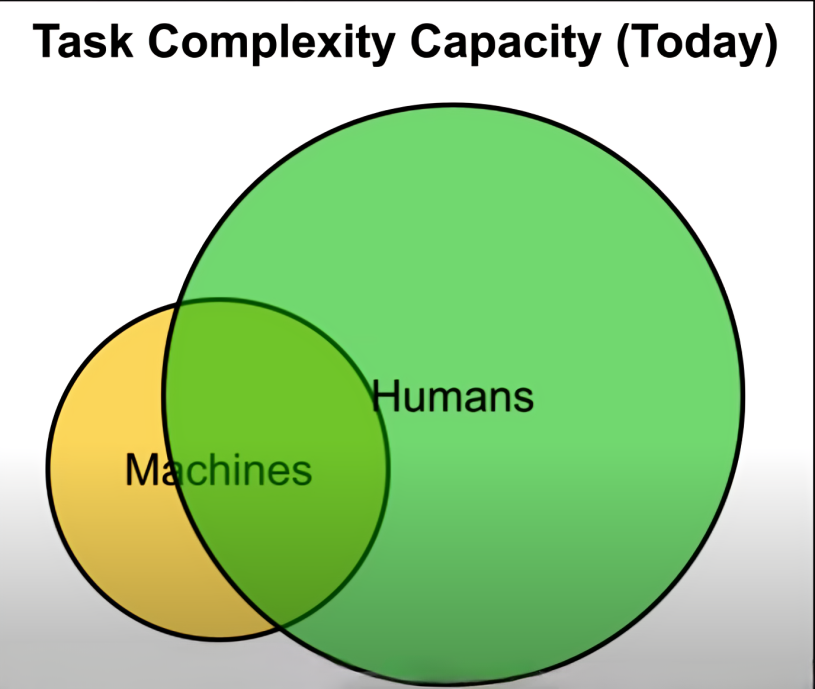
The Two Scenarios for the Future of Automation
The First Scenario
The IMF report looks deeper into the concept of task complexity, offering two clues of what a future job market wiil look like in the age of Artificial General Intelligence (AGI). The first suggests that the human capacity for managing increasingly complex tasks is limitless. This perspective aligns with the trajectory of historical progress. Throughout history, each wave of automation has changed the taks of human labor, in which each have has created more complex and intellectually demanding tasks. From the Industrial Revolution, in which the introduction of the assembly line have shifted workers away from working on the assembly line, to overseeing and working with the production process instead of being the production process. Similarly, the advent of computers and software automation in the late 20th century moved professionals from manual data entry to roles in software development, systems analysis, and IT management. Therefore, shifting humans more and more away from routine and repetitive activities. This trend implies a continually expanding Frontier of Automation, with humans adapting to more sophisticated roles as AI takes over the routine aspects.
Are there glimpses of the first scenario? Generative AI has primarily taken the form of chatbots, which you have likely used to engage in conversational interactions and manage routine inquiries. However, their capabilities remain limited when it comes to fully replacing human roles.
The next evolution of generative AI appears to be the development of AI agents—autonomous systems designed to perform specific tasks without human intervention. Unlike chatbots, AI agents can manage a broader range of activities, such as scheduling, data processing, complex analyses, and decision-making based on predefined criteria.
Key Characteristics of AI Agents:
- Autonomy: AI agents operate independently, executing tasks without the need for constant human supervision.
- Specialization: They are designed to perform specific functions with a high degree of expertise.
- Integration: AI agents can interact with other AI agents—similar to having conversations—to optimize workflows and create connections between tasks.
This is reminiscent of the assembly line during the Industrial Revolution, where automation revolutionized efficiency and productivity.
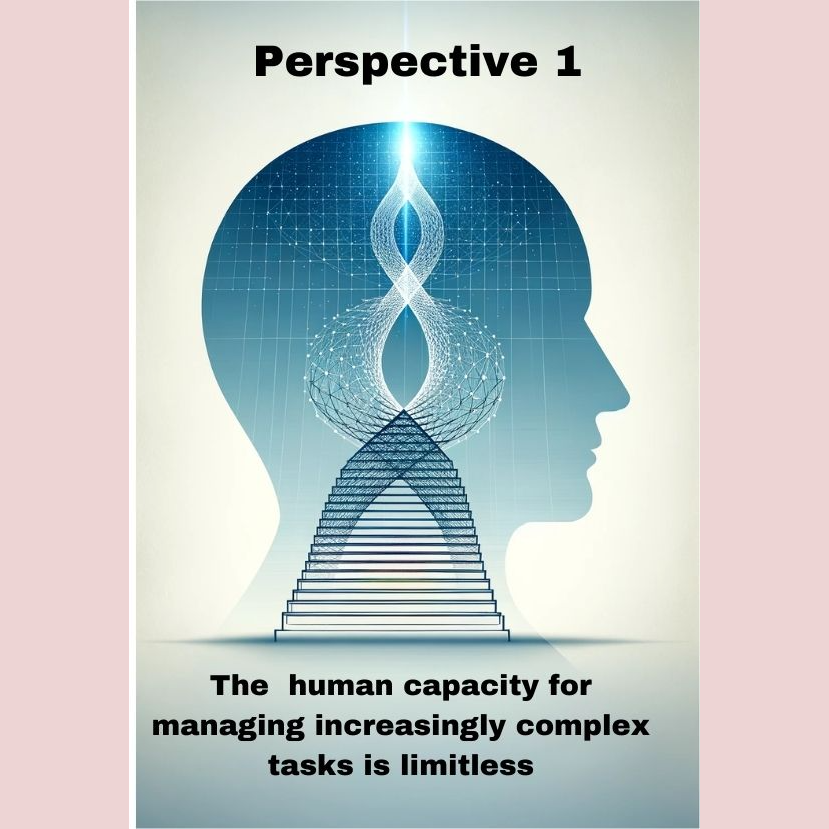
The Second Scenario
In contrast, the second view suggests that humans have a more limited ability to think and understand complex things. It argues that there is a natural/biological ceiling to the complexity of tasks that the human brain can effectively handle. Human brains share information with others quite slowly due to the limitations of our senses and language. In contrast, AI systems are rapidly improving and can exchange information much faster than we can. Machines do not have senses or emotions. This second perspective is essentially saying that the maximum task complexity we as humans can handle will at some point be reached the more our technology improves. In fact, this maximum would only be reached by our society’s Albert Einsteins and Stephen Hawkings, leaving most other humans on a more median level of task complexity.
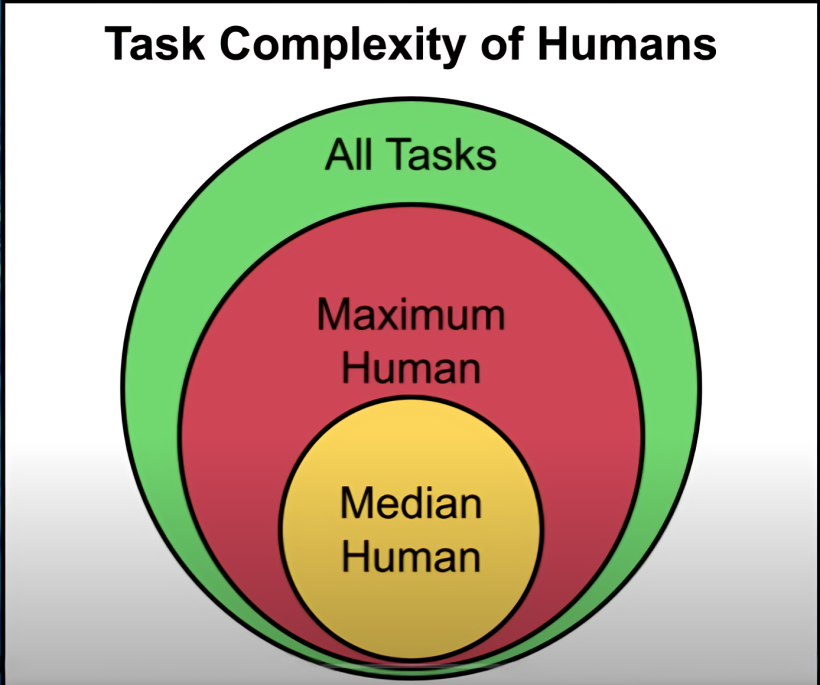
If this second perspective holds true, the implications for the future of automation could be far-reaching. As AI systems continue to evolve, they may eventually process and exchange information at speeds far greater than humans, potentially surpassing the upper limits of human task complexity. This pivotal moment, when technology surpasses human intelligence, is referred to as the ‘Technological Singularity.’
Such a scenario suggests a profound shift in the job market, where AI could outperform humans in a wide range of intellectual and complex tasks. This would fundamentally reshape the nature of work and employment as we know it. Unlike the first scenario, this perspective envisions AI taking over sophisticated roles traditionally performed by humans.
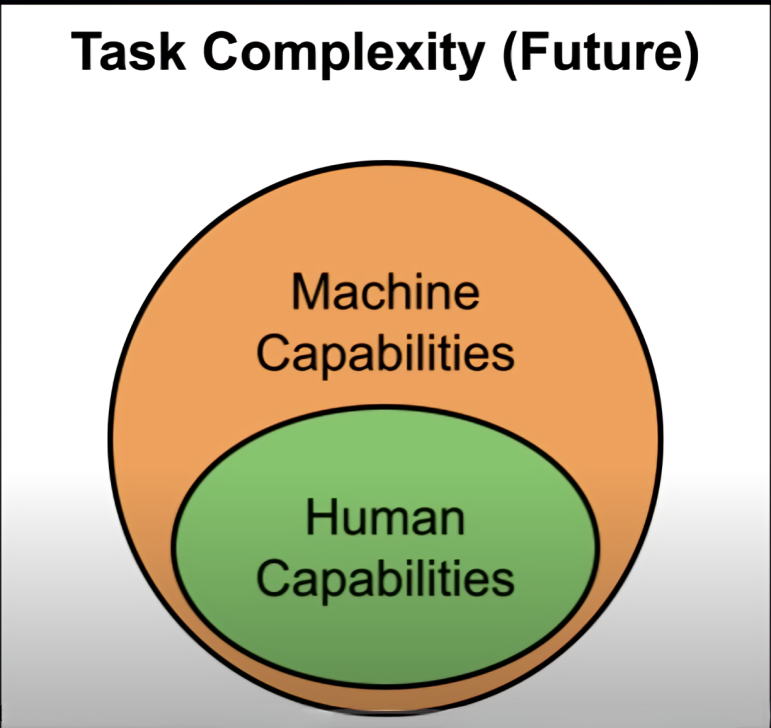
Implications for Job Market Disruption
The IMF report outlines three potential scenarios for the future of automation. The first scenario projects a “business as usual” approach, where automation will not replace human jobs entirely. The second scenario envisions a 20-year horizon in which automation could replace human job skills gradually. The third and more aggressive scenario predicts a 5-year timeline for automation to disrupt the job market significantly.
Industries such as law, medicine, and construction face regulatory barriers, which may slow the adoption of automation in these fields. However, sectors like writing and customer service are identified as particularly vulnerable to automation due to their lower regulatory constraints and the capabilities of emerging AI technologies.
Despite the anticipated wave of automation, certain job categories are expected to persist due to human preference and societal value. These include roles in governance, religious institutions, tourism, performing arts, and healthcare, where the human element is likely to remain indispensable.
For a deeper exploration of these timelines and their economic and employment implications, we encourage you to read the full IMF report.
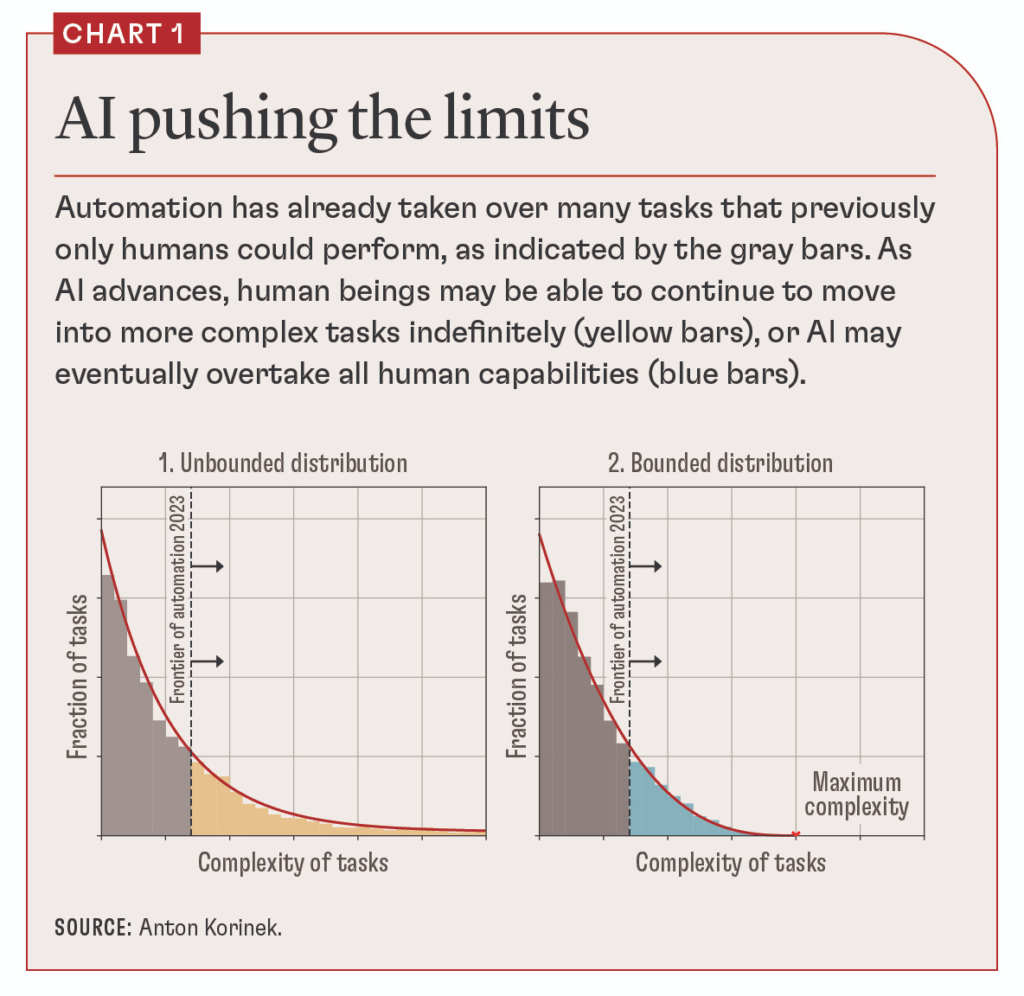
Takeaways for Students and Education
TThe arrival of Artificial General Intelligence (AGI), if realized, is expected to have a profound impact on all aspects of life, including education. This raises an important question: What can students and educators take away from this research, and how can they prepare for these advancements?
Schools may need to rethink their educational systems, shifting the focus toward teaching skills that AGI cannot easily replicate. These include creative thinking, problem-solving, and adaptability. For example, instead of assigning students to write essays on specific topics, educators could ask them to refine or improve essays generated by AI tools like ChatGPT. This approach encourages critical thinking and creativity.
For students, adopting to a mindset of curiosity and continuous learning will be essential, especially as jobs evolve with AGI’s growth. Choosing to study fields less vulnerable to automation could also be a strategic move. Additionally, focusing on areas where humans still excelm such as creativity, emotional intelligence, and interpersonal skills will remain.
Finally, understanding AI and developing the ability to work with it will be an indispensable skill in the future. Building proficiency in AI-related tools and technologies will enable students to adapt.
So…When Will AI Become Smarter Than Humans?
The future of AI, AGI, and automation is undeniably fascinating, and it’s crucial to stay informed about these transformative changes. When it comes to the question of when AI will surpass human intelligence, it’s difficult to pinpoint an exact timeline. However, it might happen sooner than we expect.
At Tilburg.ai, we are dedicated to closely monitoring advancements in AI and exploring how these developments can enhance our work, studies, and everyday lives. But we’re also curious to hear your perspective!
- Where do you think the future of AI and automation is headed?
- Are you concerned about how AI and automation might impact your job or future career?
We’d love to hear your thoughts! Share your opinions on our socials!


